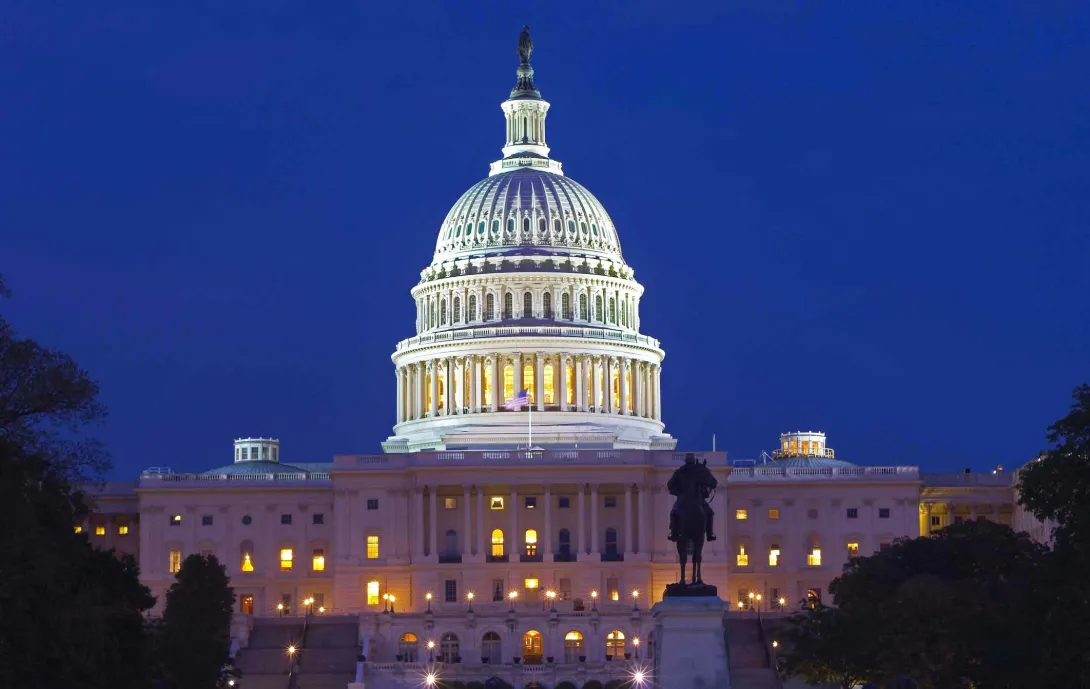
Photo: Jeremy Walke/Getty Images
Senate Finance Committee Chairman Mike Crapo, R-Idaho, on Monday released the committee's version of President Donald Trump's "Big Beautiful Bill."
The committee's text is the final piece of the upper chamber's version of the bill to be released and was the most highly anticipated, according to The Hill.
The bill keeps House provisions to Medicaid that are expected to cut $800 billion in funding for the program while adding more stringent work requirements.
Trump wants the bill to pass by July 4.
WHY THIS MATTERS
The Senate version of the spending bill establishes work requirements of 20 hours a week for able-bodied adults starting at the age 19 who do not have dependent children or elderly parents in their care.
But the Senate Finance Committee version says adults with dependent children older than 14 will also have to prove they work, attend school or perform community service for 80 hours per month. The House-passed version would exempt all adults with dependent children.
"We continue to express concern about the harmful Medicaid and Health Insurance Marketplace provisions included in the House-passed bill, which would cut more than $800 billion from healthcare programs and result in almost 11 million people losing healthcare coverage. These cuts will strain already overburdened hospitals and emergency departments as they become the family doctor for millions of newly uninsured Americans, which makes care less accessible for everyone," said American Hospital Association President and CEO Rick Pollack, in comments made in June.
The AHA referred to these comments in addressing the Senate Finance Committee's bill, which also makes changes to provider taxes.
The AHA is "focused like a laser beam" on the preservation of provider tax and supplemental payment programs, Pollack said.
Provider taxes are state-imposed fees on hospitals and nursing homes that help fund Medicaid. Through these taxes, states generate revenue, which, when combined with federal matching funds, expands Medicaid funding.
The legislation would effectively cap provider taxes at 3.5% by 2031, down from the current 6%, but only for Medicaid expansion states, according to The Hill. The cap would be phased in by lowering it 0.5% annually, starting in 2027. Conservatives argue states are gaming the current system and driving up federal Medicaid spending.
The Senate Finance bill also cuts certain existing state-directed payments to hospitals, which would be a significant hit to the hospitals' bottom line. The House version, in contrast, would limit future payments but grandfather existing arrangements, the report said.
Also in the Senate Finance Committee version of the bill is a prohibition on implementing the April 2, 2024, rule that streamlined the application, eligibility and enrollment processes for Medicaid.
The bill also prohibits implementation of the final staffing rule for nursing facilities that was finalized in May 2024.
The committee bill takes aim at fraud by reducing duplicate enrollment, preventing enrollment under multiple state plans and ensuring deceased individuals do not remain enrolled.
THE LARGER TREND
Republicans are improving Medicaid for those who need it while putting it on a fiscally sustainable path, according to a summary of the bill.
Among other provisions, it increases the frequency of eligibility verifications for able-bodied adults, removes individuals from Medicaid rolls who have homes worth over $1 million and ensures illegal immigrants do not receive Medicaid benefits.
It also ends taxpayer-funded Medicaid payments for abortion services and gender transition procedures.
"Democrats have incentivized Medicaid to enroll healthy Americans and illegal immigrants, driving up costs for taxpayers and risking sustainability for those who need the program most," the bill summary said.
Federal Medicaid outlays have increased 207% since 2008 and 51% since 2019, and Medicaid spending as a share of federal outlays rose to 10% from 7% between 2007 and 2023, according to the bill summary.
Email the writer: SMorse@himss.org